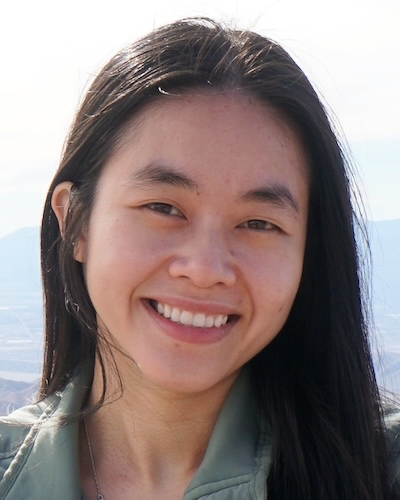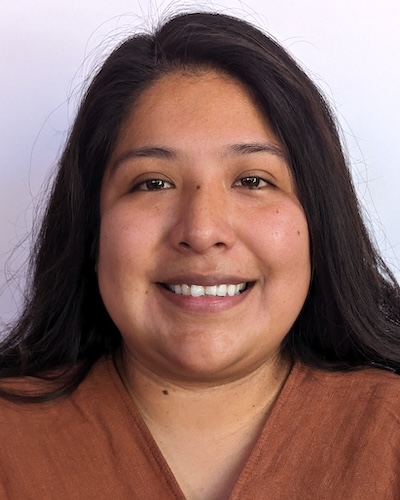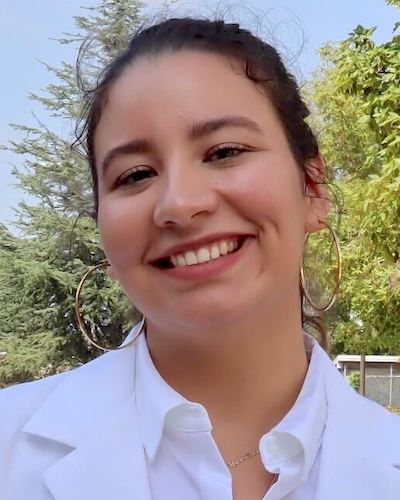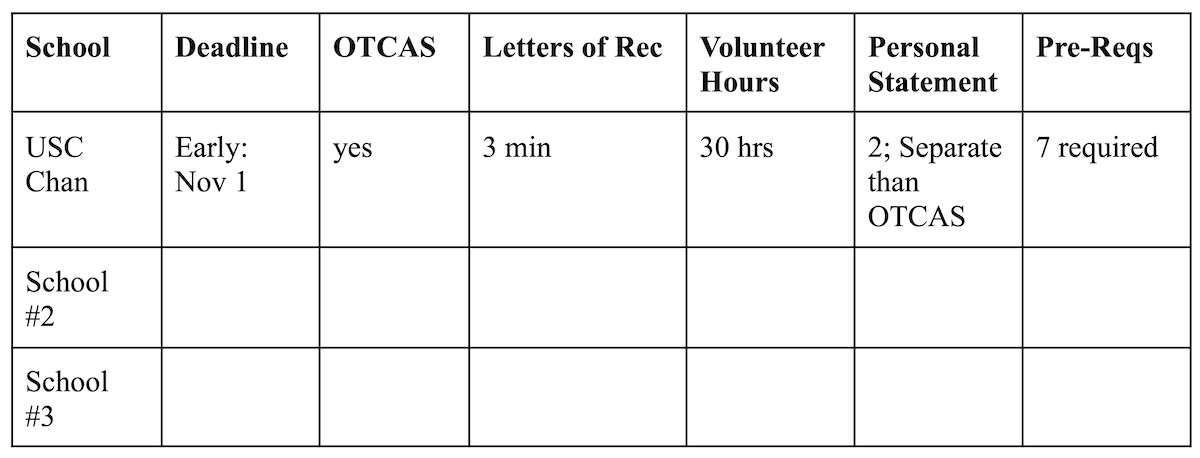Student Blog
First-Gen

My Mental Health and How It Led Me to OT ⟩
October 22, 2024, by Dana
Beginnings and Endings First-Gen
As an immigrant, the idea of the “American Dream” was the main path that every immigrant aimed to achieve. All my life, I was told to keep learning and going to school to achieve higher education so that I can make more money and live that “American Dream”. So, being in an Asian immigrant household, I was expected to become a doctor, lawyer, engineer, or entrepreneur of some sorts in high positions. My first time ever where I thought of a career path for myself was in middle school. Low and behold, I thought of becoming a lawyer. I had this immense confidence that I could argue anything and everything with those around me whenever I disagreed with them. However, that did not last very long when high school came along and my confidence and mental health plummeted.
High school was an interesting time, but it was also a traumatizing time for me that is buried all the way in the back of my mind. I was not given sufficient guidance nor opportunities to explore what I potentially wanted to do in the future. It was a time where academic excellence was ingrained in my mind by my parents and teachers. Excelling in classes and engaging in educational organizations were the priorities of what other people wanted for me. It took me some time to process, after the fact, that that was one of the causes of my mental downfall. In addition, a huge life event of my mom passing away during my sophomore year created even more mental turmoil. As much as I expressed what was happening to me in my high school, they wanted me to focus on strengthening my college applications with grades, standardized tests, and personal development. Ironic because the only personal development my high school allowed was to develop our academic skills. With no guidance there, I fought to find my own path.
Getting past the grief of my mom being gone was what felt like the longest mental journey of my life. However, her passing sparked my love for healthcare. There were some things I wished the healthcare system could have done for her to increase her quality of life by maintaining her independence and promoting occupations in which she could still engage in. Watching her lose all her ability to do things for herself was difficult as a teenager because I had seen her do almost everything for our family. Because my high school wasn’t helping me explore career paths, I took it upon myself to research healthcare professions that aligned with my values and goals of helping people with terminal conditions have some independence and internal satisfaction with what they can do while they are still alive. With extensive research, I came across Occupational Therapy.
I didn’t follow the traditional path that was expected of me, but I found something better: a career that aligns with my values, one where I can help others maintain their dignity and independence, just as I once wished for my mom. Occupational Therapy became more than just a profession — it became a way for me to honor her, and in some ways, to heal myself.
⋯

Why did I decide to become a student ambassador? ⟩
May 30, 2024, by Patricia
First-Gen
I love working and communicating with prospective students, organizations, and schools that are interested in higher education. During my undergraduate studies at CSULA I had the opportunity to work as a student ambassador. I had the opportunity to work with high school students that resided in the east area of LA to apply and help them with their on-boarding process to CSULA, attend college fairs, support campus events, and more! I loved my role as an ambassador because I got to know and learn from everyone, but most importantly, develop relationships with students. As a Latina and first-generation student, I understood a lot of what students expressed and had concerns about. For example, ‘how to pay for college?’, ‘what do I want to major in?’, ‘what is graduate school?’, and the list goes on. Five years after receiving my B.A. those questions and unknowns were still applicable when I searched and applied to graduate school. I became a USC student ambassador to be an asset to you all. I am more than glad to help you in any way I can by sharing what I know, what I wish I knew before starting grad school, and more. If you are interested in learning more about Occupational Therapy, the USC Chan Division of Occupational Science and Occupational Therapy, or just simply wanting to chat, please reach out.
⋯

My Vietnamese Immigrant Dad Doesn’t Know What I’m in School For ⟩
May 29, 2024, by Dana
Diversity First-Gen International
Growing up in a Vietnamese immigrant family, there were always high expectations of my siblings and me to get a career that is well-known. After high school, I knew I wanted to pursue occupational therapy, but because it was not a common major nor was it something my dad knew about, I decided to major in Psychology because it was a study that I was actually able to translate to my dad. Because it is a well-known field of study, it was expected that I would continue with Psychology in higher education, and with that, my dad had ingrained that I was going to get a doctorate in Psychology. He was telling my extended family and everyone he knew that that was what I was pursuing. However, when I found out that he was telling people that, I tried to explain and translate that I am going to school for occupational therapy, but there was no direct translation for occupation besides the connotation of it being a job. While there is translation for therapy in Vietnamese, it is not equivalent to what OT actually is.
What’s baffling to me is that there is a direct translation for physical therapy in Vietnamese which creates a perceived upper hand to occupational therapy (we can’t get a break from being referred to as PT even in different languages). So, when I was explaining OT to my dad again, I had to use PT in Vietnamese as a base term to describe OT, how there’s an overlap but it’s still different from one another. It does not give OT the recognition they deserve in my mother tongue, but that was the best I could do. But because my dad still didn’t fully understand it, he continued telling people that I am getting a PsyD…
Not until I took OT 519: Theoretical Foundations of Occupational Science and Occupational Therapy during my first semester of the Entry-Level OTD program did I venture on the idea of occupational therapy around the globe. Through extensive discussions and reflections on the definitions of occupational therapy around the world, there was that connection that I was not the only one who couldn’t translate the profession into their mother tongue. In class, we discussed the possibility of a universal definition for the term “occupation”, however, it is almost impossible to be translated with one meaning, and it cannot be applied the same way in other cultures. It can be challenging to find words that precisely convey the true meaning of certain English words. In other countries, the word occupation holds different meanings and significance, so it would be difficult to label occupation as having just one definition. However, without the understanding of this term there is a struggle to create relevance for the OT profession in other cultures.
Looking into my motherland of Vietnam, therapeutic professions are still very limited over there due to lack of understanding of healthcare services besides the main medical care. In addition, I grew up in a rural area of Vietnam where access to any healthcare was very miniscule, with the closest hospital being over an hour away, so the idea of having any other forms of healthcare was not relevant in my family. I do hope that in the future, I can spread some awareness of occupational therapy by having an accurate translation of the profession and show its importance to my family and the community.
⋯

In the words of Elle Woods, “What? Like it’s Hard?” ⟩
February 15, 2024, by Natalie
Admissions First-Gen
GRADUATE SCHOOL. Sounds scary doesn’t it? Being a first-generation student, I struggled to create a mental picture of myself at undergrad, let alone at grad school — but I made it through undergrad. I had all the support from my family and friends and was raised being taught there isn’t anything that can get in my way, and that if it felt like there was, to persevere and create my own path. So that’s what I did. But what no one told me was that the application process would be even scarier.
The application process for OT school was overwhelming to me. I began researching programs and their application requirements in late 2018 but only applied in the 2021 application cycle. At the time, I noticed that almost, if not all, the schools required applications be submitted through OTCAS and also had their own program specific requirements. Some schools required applicants to submit a supplemental application or submit an application to the graduate school at their university, required additional volunteer hours, or needed supplemental forms. I can fill another 4 pages to talk more about MY specific application process adventure, but instead I want to give all of you some information and tips that I think would have been useful to know before starting the process.
- Start earlier than you expect to. In doing my research and trying to find advice on how to navigate the timeline for submitting applications, I found a really cool schedule that gave me a monthly overview of what to complete in that month in order to submit my applications with a month or two to spare. Even with the timeframe laid out for me, some of my steps took longer to complete and I found myself being happy with having more time.
- Triple check the due date. The programs I applied to required that my application be verified by the due date. OTCAS will handle the verification process for your application, but in order to ensure it gets verified in enough time to meet the deadline, you need to submit your application three weeks earlier. It is completely possible for an application to get verified within a few days, but why stress yourself out with something that is so out of your control?
- Organize the requirements for your different programs in a way that makes sense for you. Because having multiple programs with different requirements can be overwhelming, it can be super helpful to organize the requirements in a list, table, chart, etc. I made a list for myself for each program, but looking back, a Google sheet or Excel sheet would have been more fitting. Seeing all of the programs and the requirements organized but in one place can be helpful, and using the Google/Excel sheet allows you to strikethrough or highlight the completed cells.

- Budget accordingly. Grad school applications can get expensive. OTCAS charges about $160 for the first program you apply to and around $70 for EACH additional program. On top of that, some schools have their own additional application fee. OTCAS does have a Fee Application Program which provides a waiver that covers the cost of the first program you apply to. (Note that these waivers are limited and come on a first come first serve basis.) Once you are accepted, many of the schools also require a deposit (not USC) to save your spot and those fees vary in price.
- Reach out to schools directly for help. It might feel a little daunting to reach out to a school to ask questions to clarify their requirements (especially if you are like me and overthink everything). Keep in mind, schools want you to apply to their programs. They want to hear from you, want to answer your questions, and want to do whatever they can to make this process easier for you. And no, they won’t be keeping track of the questions you ask or assessing you in every single interaction you have with them — if that were the case, that would be listed as an application requirement.
- Familiarize yourself with OTCAS. Most of the schools require applicants to submit their applications through the Occupational Therapy Centralized Application Service (OTCAS). Using OTCAS allows you to submit all of the requirements that overlap across the programs you plan to apply to, helps track your progress, and as I mentioned earlier, completes the verification process for you. As with anything new, it can be confusing to use without spending time to familiarize yourself with it first.
- Lean on your support system! I don’t need to tell you that your family and friends are there for you and want to see you succeed — that’s a given. But your support system is probably bigger than you realize — the OTs that you shadow, any mentors you have, they’re all there for you too and they have been through the application process before, giving them a specialized and extra relevant perspective.
- Be strategic with your personal statement. Most OT programs are working towards trying to diversify their student populations (yay!) and in doing so are looking for well rounded individuals. Sure your grades and past GPAs are important, but so are your personal statements, through which the admissions teams are getting to know YOU as a person. Furthermore, because OT is as holistic as it is, I believe there is an even greater importance in making sure your personality (and not just all your achievements) shines through your personal statement.
- Don’t underestimate yourself. To be fully transparent, I applied to USC Chan just for fun, and even worried I wouldn’t be accepted to any of my programs because of how long I had been out of school. Looking back, I can definitively say I applied to way too many programs and really should have had a bit more faith in myself. Now I can’t guarantee anything, but if you’re spending your time reading blogs like this to better prepare for the process, I bet you are an amazing candidate and will make it to where you want to be.
This is a long list of suggestions and advice, I know. I hope it helps you channel your inner ✨Elle Woods✨ throughout your application process! Please do not hesitate to reach out to me or any of my fellow ambassadors at .(JavaScript must be enabled to view this email address) if you have any other questions. Best of luck and Fight On!
⋯

OT Didn’t Choose Me, I Chose OT ⟩
January 19, 2024, by Natalie
First-Gen What are OS/OT?
Now this isn’t one of those admirable stories where the storyteller explains how occupational therapy has always been a part of their life — in fact, I did not know OT existed almost until the end of my undergraduate career. This story is one about unexpected chances [coincidences instead of unexpected chances?] and for that, I am forever grateful.
From a very early age, I was taught the importance of higher education and encouraged to know what career path I wanted to take. For the longest time, I saw myself pursuing medical school to become a pediatrician, until I also saw myself as a firefighter, a police officer, a lawyer, a teacher . . . the list goes on. I was coming up towards the end of my junior year of college when I felt the impending need to decide what I wanted to do for the rest of my life. *cue the internal panic*
At the time, I was taking a course titled “Psychology of Aging” and one of our assignments was to find and research a profession that works closely with older adults. I completed my assignment, talking about how cool art therapy sounds. I was so excited to have found a potential career path that would allow me to help people through art. My partner then recommended I speak to his sister, who “probably has experience with art therapy but I think also does a whole bunch of other cool things with her clients as an occupational therapist?. . .” I was so curious to learn more about this “occupational therapy” so I spoke to his sister and she shared all her knowledge and experiences with me. And the rest is history from there . . . (just kidding, is it ever that easy?)
As I learned more and more about OT and what it is, what it looks like, and how broad the profession is, I felt both thrilled and confused. There was so much to learn (which still applies now), and the more I searched, the more I found. The best part of this process — and most telling — was that every time I learned something new, I felt further captivated by OT. I soon realized that this is THE profession for me — it gives endless possibilities for what populations and practice settings I can work with/in and blends my interests for art and science well.
Additionally, despite all of the information I found about the profession when I went digging for it, I was baffled to discover how widely unknown OT is. It seemed as if having a personal experience with OT was the only way people knew about it. I mean, I only learned about it by chance. I quickly realized this lack of recognition of the field meant underserved populations likely have limited-to-no access to the types of services occupational therapy can provide, and that didn’t sit well with me. Because of this, I decided I wanted to pursue a career in OT where I can work within those underserved communities and hopefully serve as an advocate for both my clients and the profession.
⋯





